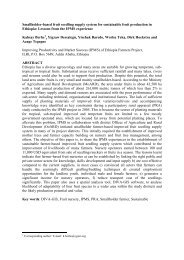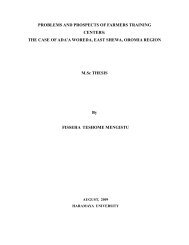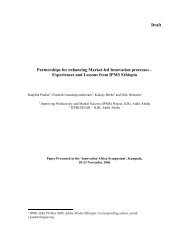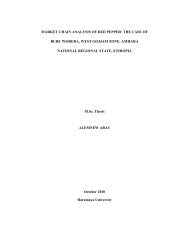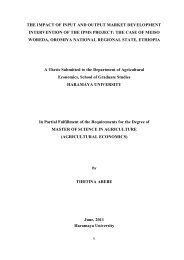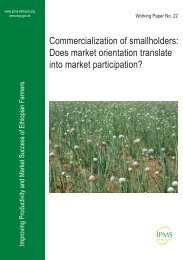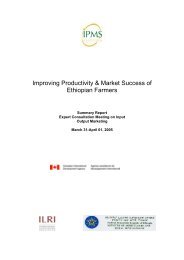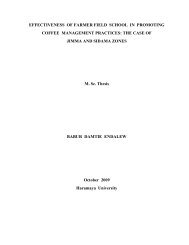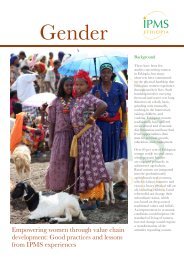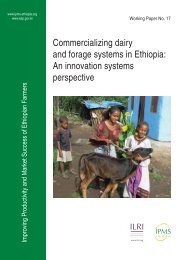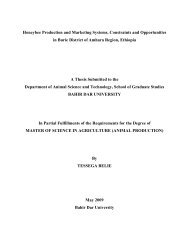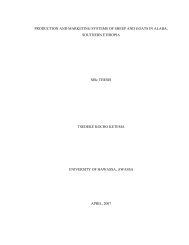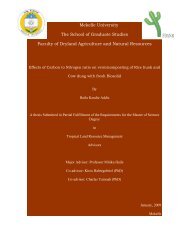effectiveness of modular training at farmers - IPMS Information ...
effectiveness of modular training at farmers - IPMS Information ...
effectiveness of modular training at farmers - IPMS Information ...
Create successful ePaper yourself
Turn your PDF publications into a flip-book with our unique Google optimized e-Paper software.
Case StudyFiseha Binega(Trained farmer) in Alember PA, Fogera woredaThis case study has focused on the knowledge from <strong>modular</strong> <strong>training</strong> on beekeeping practices. The <strong>effectiveness</strong> <strong>of</strong> <strong>modular</strong><strong>training</strong> in promoting apiculture practices was best illustr<strong>at</strong>ed by one <strong>of</strong> trained farmer who lives in Alember peasantassoci<strong>at</strong>ion, Fogera Woreda. Fiseha Binega is a beekeeper aged 35 years, married and living with his family told about the<strong>effectiveness</strong> <strong>of</strong> <strong>modular</strong> <strong>training</strong> in the beehives management and other rel<strong>at</strong>ed beekeeping practices.He said, “Five years back, I was selected as one <strong>of</strong> the <strong>training</strong> participants in the bee hive management in the community.Beekeeping is challenging, but it is an interesting enterprise because it needs serious follow-up, skill <strong>of</strong> management andexperience. I have actively particip<strong>at</strong>ed in <strong>farmers</strong>’ <strong>training</strong> through group discussion; practical demonstr<strong>at</strong>ion and groupexercise because more than 15 beehives are belonging to me. Through group learning with the help <strong>of</strong> the facilit<strong>at</strong>or (AmareGenetu), I have already acquired knowledge about the bee splitting, honey harvesting systems, transitional beehives making,dearth period management, housing, transferring <strong>of</strong> bees, wax making, and other bee-enemies management practices. In thisaspect, traditional bee hives were not able to give honey production more than 5 kg per hive per year. Currently, honeyproduction has been raised to 25 kg per improved hive per year. This change would never have happened, if I would not haveparticip<strong>at</strong>ed in <strong>modular</strong> <strong>training</strong>. I have performed practically wh<strong>at</strong> I have learned in the Farmers’ Training Center.”He explained further as “Now-a-days, I use improved traditional, transitional and framed beehives. In the near future, I want toincrease the number <strong>of</strong> beehives with proper management practices. As you see, in addition to appropri<strong>at</strong>e management, there isa big n<strong>at</strong>ural forest in close proximity to my home th<strong>at</strong> gives additional potential for honey production. In general, this is theoutcome <strong>of</strong> <strong>training</strong> from which knowledge and better practices were acquired.”50



